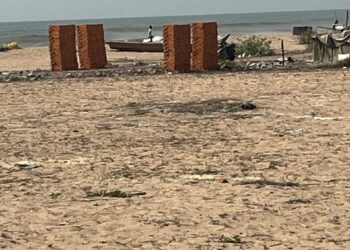World Health Organization (WHO) has again declared Mpox a Public Health Emergency of International Concern (PHEIC) on 14th August 2024 given its prevalence and spread across many parts of Africa. Since the 2022 declaration of a Public Health Emergency of International Concern by WHO, 30 cases have been reported in India. The last case of Mpox was detected in March 2024.
The Government of India is taking proactive measures to prevent and control the potential spread of the disease. On Aug.18, the Prime Minister chaired a high-level meeting to assess the situation in India. The country has not yet reported any cases of Mpox. It was also informed that the state-level health authorities, including the Integrated Disease Surveillance Programme (IDSP) units in the states and at the ports of entry etc., were sensitised in this regard.
Surveillance will be enhanced and effective measures will be taken for prompt detection of cases. The testing laboratory network will also be geared toward early diagnosis. Presently 32 labs are equipped for testing. It was also decided that protocols for prevention and treatment of the disease may be disseminated on a large scale and an awareness campaign is conducted amongst the healthcare providers regarding the signs and symptoms of the disease and the need for timely notification to the surveillance system.
The following steps have already been taken in the last one week:
- A meeting of experts was convened by the National Centre for Disease Control (NCDC) on Aug.12 to assess the risk for India.
- A Communicable Disease (CD) Alert on Mpox issued earlier by the NCDC is being updated to capture the newer developments.
- Sensitization of the health teams at International Airports (Ports of Entry) has been undertaken.
About Mpox
Mpox (monkeypox) is an infectious disease caused by the monkeypox virus. It was discovered in Denmark (1958) in monkeys kept for research and the first reported human case of Mpox was a 9-month-old boy in the Democratic Republic of the Congo (1970). Mpox can spread from person to person or occasionally from animals to people. Following the eradication of smallpox in 1980 and the end of smallpox vaccination worldwide, mpox steadily emerged in central, east and west Africa. A global outbreak occurred in 2022–2023. The natural reservoir of the virus is unknown – various small mammals such as squirrels and monkeys are susceptible.
Common symptoms of Mpox are rash, fever, sore throat, headache, muscle aches, back pain, low energy and swollen lymph nodes. Most people fully recover, but some get very sick.
It spreads from contact with infected:
- Persons, through touch, kissing, or sex
- Animals, when hunting, skinning, or cooking them
- Materials, such as contaminated sheets, clothes or needles
- Pregnant persons, who may pass the virus on to their unborn baby.
If you have Mpox:
- Tell anyone you have been close to recently
- Stay at home until all scabs fall off and a new layer of skin forms
- Cover lesions and wear a well-fitting mask when around other people
- Avoid physical contact.
Getting a Mpox vaccine can help prevent infection.











